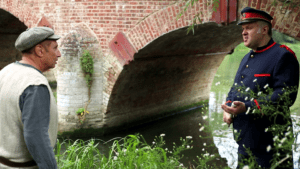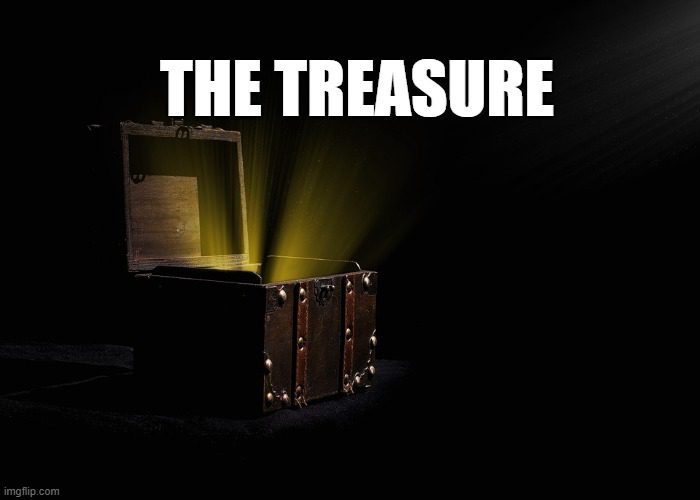Everyone Has a Treasure Within Them
THE TREASURE
Story told by Rebbe Nachman of Breslov
Film adaption produced and directed by Tzvi Fishman

Content and Themes
There are two basic messages, which are openly stated at the end of this story. The first message is that everyone has a treasure within them. For Rebbe Nachman, this treasure is the Jewish soul and our innate connection to Hashem and to His Torah, which He gave to Am Yisrael and implanted within us. But some people are not aware of this treasure, or were never educated to recognize it; and sometimes their travels in foreign pastures, and the influences of foreign beliefs, caused them to forget the unique Jewish treasure within them. This is true for individuals and also for the Jewish People as a whole. After a very long exile, wandering in foreign lands, our sense of who we are as a Nation became distorted and confused. Today, the Nation of Israel is in the process of rediscovering who we are. Paralleling this idea is the “treasure” of the Land of Israel. The exiled Jewish Nation has wandered around the globe for almost 2000 years searching for a haven it can call its own, thinking to find it in Spain, Russia, Germany, or America, even though the treasure was always there in Eretz Yisrael, the original and eternal Jewish Homeland. And even today, when Hashem has brought us back to the Land of Israel with the re-establishment of the Jewish State, many Jews in the Diaspora are still searching for the treasure in foreign lands.
In a more universal sense, all people have “treasures” within them. Some people are very kind, others are very creative; some people excel in sports, while others have keen intellectual skills. Some people have the inner treasure of being giving and thoughtful of others, while others have the treasure of being good listeners and friends.
The second message of the story is that to recognize this hidden treasure, a person often has to travel far and wide, in order to seek out the person who can help him discover the treasure in himself. For Rebbe Nachman, this is the role of the Tzaddik (righteous Sage). By following the wise advice of the Tzaddik, a person can uncover the treasure within him. This very important person can also be a parent, a brother, a teacher, a counselor, or a friend. The Talmud teaches that a prisoner cannot free himself from prison. Rather, he needs the assistance of someone on the outside who can show him the proper way. When someone is confused and is struggling to discover who he really is, the role of the mentor or guide is crucial to his or her coming to self-discovery.
An interesting aspect of the story is the Peasant’s dream. Dreams which leave a deep and lasting impression on the dreamer are often pathways to a person’s inner psyche, hidden desires, and sometimes a channel to Divine Inspiration (Ruach HaKodesh). In a similar way, the king’s search for the truth in the “Kuzari” is inspired by a dream. In the Torah itself, there are examples of significant dreams, and prophecy itself is most often transmitted (except in the case of Moshe) through dreamlike states.
Questions and Points of Discussion
In Rebbe Nachman’s story, what do you think the treasure symbolizes?
What is the significance of the Peasant’s finding the treasure in his very own house?
There can be many types of treasure that a person can have – name some of them.
A nation can also have national treasures. For example, some lands are rich in coal, or oil, or abundant wildlife like in Africa. What are some of the treasures of Am Yisrael?
What is the role of the policeman in the story?
Have there been people in your own life who helped you to learn new things about life and discover more about yourself?






